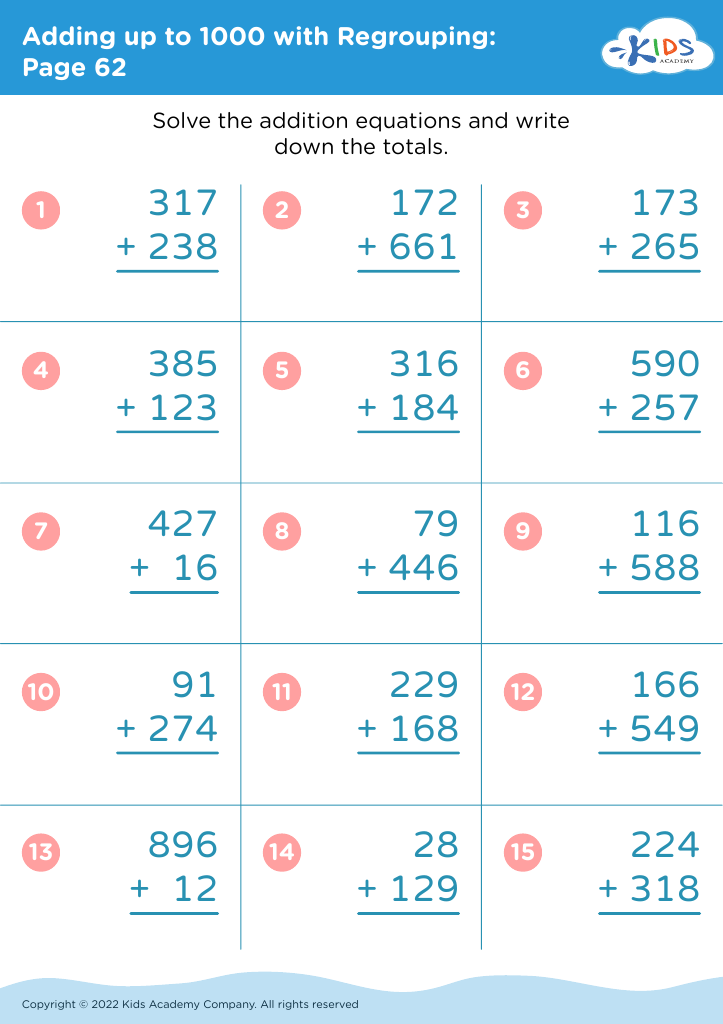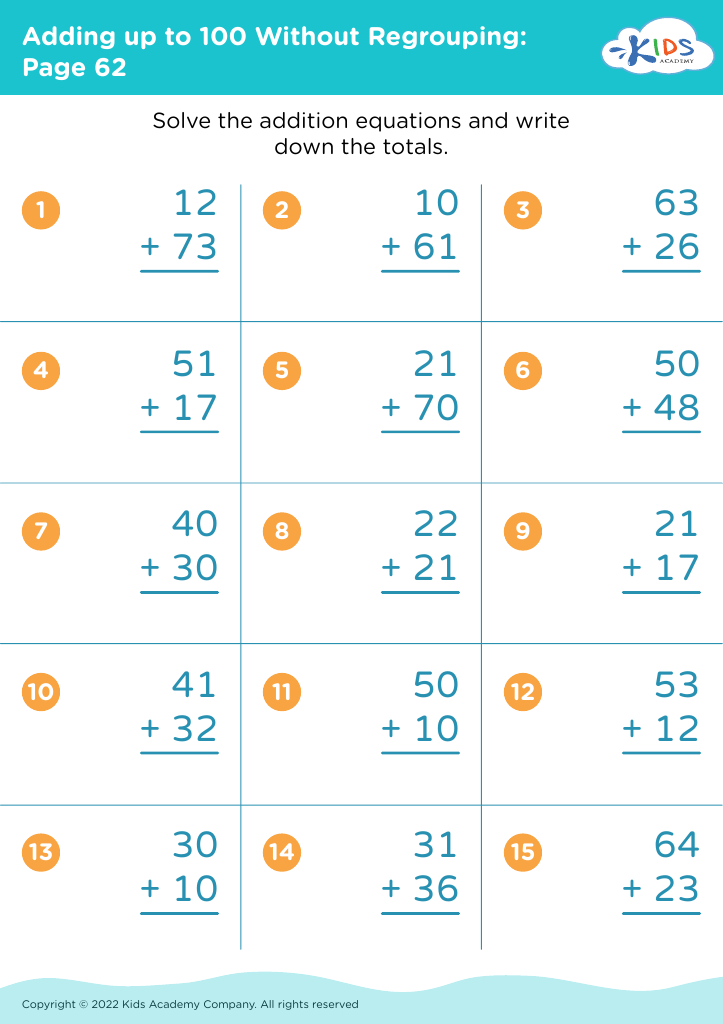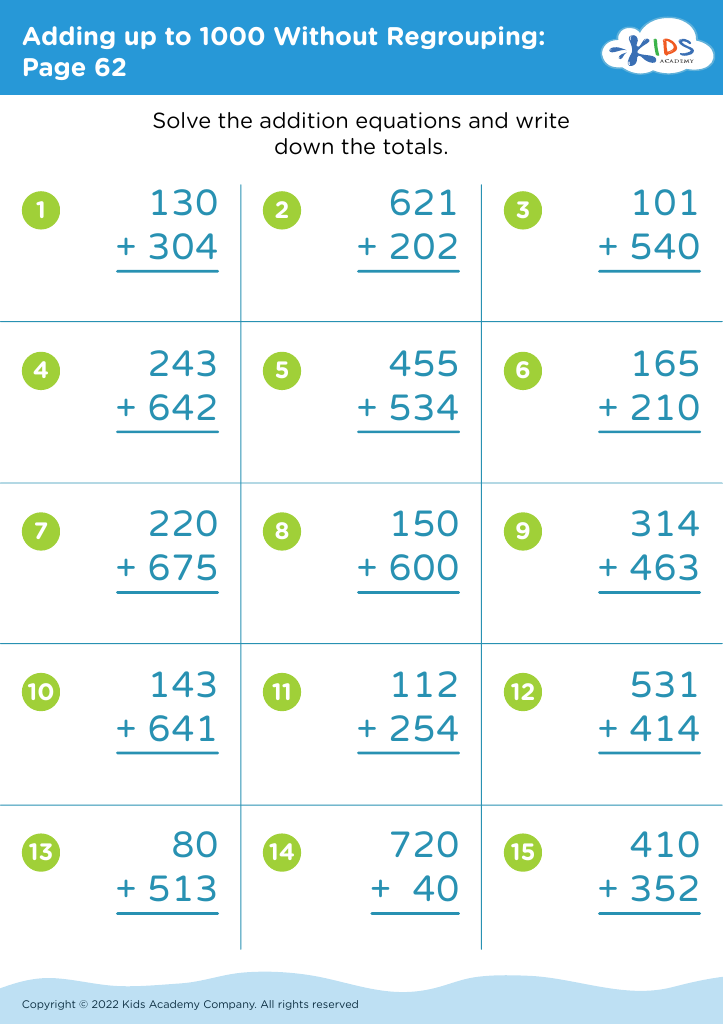Identifying fractions Addition Worksheets for Ages 7-9
4 filtered results
-
From - To
Help young learners master the key math skill of adding fractions with our "Identifying Fractions Addition Worksheets for Ages 7-9"! Designed to engage children in an interactive and fun learning process, these colorful worksheets combine visual aids with practical problems. Ideal for students in the 2nd and 3rd grades, they provide step-by-step guidance to ensure clear understanding and gradual progression. Perfect for classroom use or at-home practice, our worksheets make learning enjoyable, boosting both confidence and skill in adding fractions. Give your child the tools they need for math success with our specially crafted addition worksheets.
Identifying and understanding fraction addition is a crucial milestone for children aged 7-9, as it builds a solid foundation for future math skills and overall cognitive development. During these formative years, grasping the concept of fractions deepens a child's number sense and introduces them to the idea that numbers can represent parts of a whole, an essential concept for all advanced mathematics.
Understanding and adding fractions also promotes critical thinking and problem-solving skills. When children see how different fractions can be combined to make new sums, they learn to approach problems with logic and reasoning. This skill transcends mathematics and supports broader academic success.
Moreover, fluency in fraction operations is directly tied to everyday situations, such as cooking, dividing tasks, or understanding time. Recognizing these practical applications helps children see the value of what they're learning and fosters engagement and curiosity.
Teachers and parents should care about this aspect of mathematics education because competence and confidence in fraction addition at a young age can improve overall mathematical aptitude. Effective early intervention and support can prevent future difficulties, ensuring children remain confident and capable as they encounter more complex math concepts. Thus, focusing on fraction addition for ages 7-9 is a step toward lifelong mathematical proficiency and practical life skills.
























